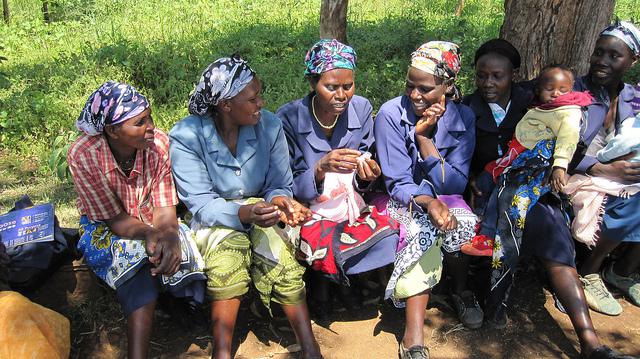Building the Evidence Base around Menstrual Hygiene Management

Credit: SuSanA Secretariat
Imagine not having access to a safe, hygienic and private place to manage your period. You can’t. But this is a reality for many women and girls across the globe, where a lack of access to clean water, safe sanitation, adequate hygiene facilities, and materials for menstrual hygiene management (MHM) exposes them to numerous, preventable diseases which may have adverse health outcomes.
Menses, periods, that time of the month, the curse, the flow, surfing the crimson wave. Whatever you call it, menstruation is a normal part of a woman’s life. It signals that a woman is healthy and fertile. Yet, across the globe, women contend with social stigma and harmful taboos which cause them unnecessary stress, embarrassment, fear and shame.
This is unacceptable, and that is why SHARE is delighted to announce that we have become a partner of WASH-United’s Menstrual Hygiene Day.
What is Menstrual Hygiene Day?
Held annually on 28th May, Menstrual Hygiene Day seeks to “help break the silence and build awareness about the fundamental role that good MHM plays in enabling women and girls to reach their full potential”. Through providing this global platform for action, advocacy and knowledge-sharing, Menstrual Hygiene Day, aims to create a world where every woman and girl can practice safe and hygiene MHM with dignity.
This is very much in line with SHARE’s commitment to delivering evidence that improves access to sanitation and hygiene for all in low income countries. As such, for the last few years SHARE has been contributing to building the knowledge base around and sharing learning on MHM globally. Some of the research and outputs we have supported include:
• A systematic review of the health and social effects of MHM
• The Menstrual Hygiene Matters manual featuring examples of good MHM practice
• A Training Guide for Practitioners seeking to integrate MHM into their work
• A study in India investigating the impact of MHM on urogenital infections
Get involved
Today is the perfect day to find out more about WASH and MHM and to help break the silence. So, why not:
• Listen to our podcast about SHARE’s work on MHM
• Sign up to our newsletter to get the latest updates on our MHM work
• Visit the Menstrual Hygiene Day website and sign up to their ‘Keeping the Flow’ newsletter
• Follow the #MenstruationMatters and #MenstrualHygiene hashtags on Twitter
• Read Louisa Gosling's blog for WaterAid
